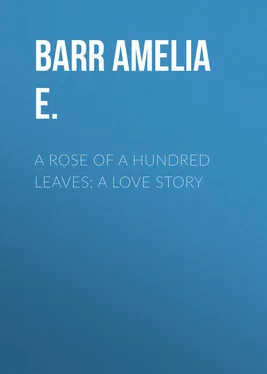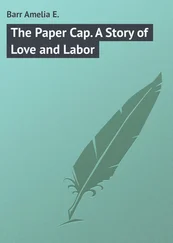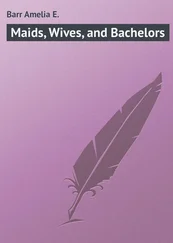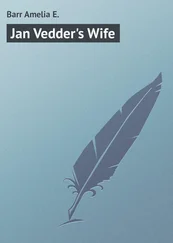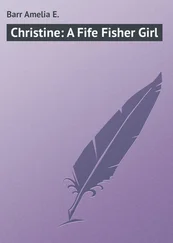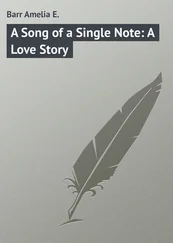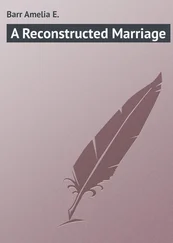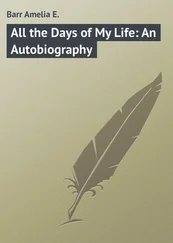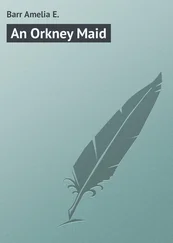Amelia Barr - A Rose of a Hundred Leaves - A Love Story
Здесь есть возможность читать онлайн «Amelia Barr - A Rose of a Hundred Leaves - A Love Story» — ознакомительный отрывок электронной книги совершенно бесплатно, а после прочтения отрывка купить полную версию. В некоторых случаях можно слушать аудио, скачать через торрент в формате fb2 и присутствует краткое содержание. Жанр: foreign_prose, Зарубежные любовные романы, на английском языке. Описание произведения, (предисловие) а так же отзывы посетителей доступны на портале библиотеки ЛибКат.
- Название:A Rose of a Hundred Leaves: A Love Story
- Автор:
- Жанр:
- Год:неизвестен
- ISBN:нет данных
- Рейтинг книги:4 / 5. Голосов: 1
-
Избранное:Добавить в избранное
- Отзывы:
-
Ваша оценка:
- 80
- 1
- 2
- 3
- 4
- 5
A Rose of a Hundred Leaves: A Love Story: краткое содержание, описание и аннотация
Предлагаем к чтению аннотацию, описание, краткое содержание или предисловие (зависит от того, что написал сам автор книги «A Rose of a Hundred Leaves: A Love Story»). Если вы не нашли необходимую информацию о книге — напишите в комментариях, мы постараемся отыскать её.
A Rose of a Hundred Leaves: A Love Story — читать онлайн ознакомительный отрывок
Ниже представлен текст книги, разбитый по страницам. Система сохранения места последней прочитанной страницы, позволяет с удобством читать онлайн бесплатно книгу «A Rose of a Hundred Leaves: A Love Story», без необходимости каждый раз заново искать на чём Вы остановились. Поставьте закладку, и сможете в любой момент перейти на страницу, на которой закончили чтение.
Интервал:
Закладка:
“We be all like grass! We be all like grass!”
As for the oak, it liked them to sit under it; all its leaves talked to each other about them. The starlings, though they are always in a hurry, stopped to look at the lovers, and went off with a Q-q-q of satisfaction. The crows, who are a bad lot, croaked innuendoes, and said it was to be hoped that evil would not come of such folly. But Aspatria and Fenwick listened only to each other; they saw the whole round world in each other’s eyes.
Fenwick spoke very low; Aspatria had to droop her ear to his mouth to understand his words. And they were such delightful words, she could not bear to lose one of them. Then, as the sun grew warm, and the scent of the grass filled the soft air, and the haymakers were more and more subdued and quiet, heavenly languors stole over them. They sat hand in hand, – Aspatria sometimes with shut eyes humming to herself, sometimes dreamily pulling the long grass at her side; Fenwick mostly silent, yet often whispering those words which are single because they are too sweet to be double, – “Darling! Dearest! Angel!” and the words drew her eyes to his eyes, drew her lips to his lips; ere she was aware, her heart had passed from her in long, loving, stolen kisses. On the fells, in the garden, in the empty, silent rooms of the old house, it was a repetition of the same divine song, with wondrously celestial variations. Goethe puts in Faust an Interlude in Heaven: Fenwick and Aspatria were in their Interlude.
One evening they stood among the wheat-sheaves. The round, yellow harvest-moon was just rising above the fells, and the stars trembling into vision. The reapers had gone away; their voices made faint, fitful echoes down the misty lane. The Squire was driving home one load of ripe wheat, and Brune another. Aspatria said softly, “The day is over. We must go home. Come!”
She stood in the warm mystical light, with one hand upon the bound sheaf, the other stretched out to him. Her slim form in its white dress, her upturned face, her star-like eyes, – he saw all at a glance. He was subjugated to the innermost room of his heart. He answered, with inexpressible emotion, —
“Come! Come to me, my Dear One! My Love! My Joy! My Wife!” He held her close to his heart; he claimed her by no formal special yes, but by all the sweet reluctances and sweeter yieldings, the thousand nameless consents won day by day.
Oh, the glory of that homeward walk! The moon beamed upon them. The trees bent down to touch them. The heath and the honeysuckle made a posy for them. The nightingale sang them a canticle. They did not seem to walk; they trod on ether; they moved as people move in happy dreams of other stars, where thought and wish are motion. It would have been heaven upon earth if those minutes could have lasted; but it was only an interlude.
That night Fenwick spoke to Squire William and asked him for his sister. The Squire was honestly confounded by the question. Aspatria was such a little lass! It was beyond everything to talk of marrying her. Still, in his heart he was proud and pleased at such high fortune for the little lass; and he said, as soon as Fenwick’s father and family came forward as they should do, he would never be the one to say nay.
Fenwick’s father lived at Fenwick Castle, on the shore of bleak Northumberland. He was an old man, but his natural feelings and wisdom were not abated. He consulted the History of Cumberland, and found that the family of Ambar-Anneys was as ancient and honourable as his own. But the girl was country-bred, and her fortune was small, and in a measure dependent upon her brother’s management of the estate. A careless master of Ambar-Side would make Aspatria poor. While he was considering these things, Lady Redware arrived at the castle, and they talked over the matter together.
“I expected Ulfar to marry very differently, and I must say I am disappointed. But I suppose it will be useless to make any opposition, Elizabeth,” the old man said to his daughter.
“Quite useless, father. But absence works miracles. Try to secure twelve months. You ought to go to a warm climate this winter; ask Ulfar to take you to Italy. In a year time may re-shuffle the cards. And you must write to the girl, and to her eldest brother, who is a fine fellow and as proud as Lucifer. I called upon them before I left Cumberland. She is very handsome.”
“Handsome! Old men know, Elizabeth, that six months after a man is married, it makes little difference to him whether his wife is handsome or not.”
“That may be, or it may not be, father. The thing to consider is, that young men unfortunately persist in marrying for that first six months.”
“Well, then, fortune pilots many a ship not steered. Suppose we leave things to circumstances?”
“No, no! Human affairs are for the most part arranged in such a way that those turn out best to which most care is devoted.”
So the letters were thoughtfully written; the one to Aspatria being of a paternal character, that to her brother polite and complimentary. To his son Ulfar the old baronet made a very clever appeal. He reminded him of his great age, and of the few opportunities left for showing his affection and obedience. He regretted the necessity for a residence in Italy during the winter, but trusted to his son’s love to see him through the experience. He congratulated Ulfar on winning the love of a young girl so fresh and unspoiled by the world, but kindly insisted upon the wisdom of a little delay, and the great benefit this delay would be to himself.
It was altogether a very temperate, wise letter, appealing to the best side of Ulfar’s nature. Squire William read it also, and gave it his most emphatic approval. He was in no hurry to lose his little sister. She was but a child yet, and knew nothing of the world she was going into; and “surely to goodness,” he said, looking at the child, “she will have a lot of things to look after, before she can think of wedding.”
This last conjecture touched Aspatria on a very womanly point. Of course there were all her “things” to get ready. She had never possessed more than a few frocks at a time, and those of the simplest character; but she was quite alive to the necessity of an elaborate wardrobe, and she had also an instinctive sense of what would be proper for her position.
So the suggestions of Ulfar’s father were accepted in their entirety, and the old gentleman was put into a very good temper by the fact. And what was a year? “It will pass like a dream,” said Ulfar. “And I shall write constantly to you, and you will write to me; and when we meet again it will be to part no more.” Oh, the poverty of words in such straits as these! Men say the same things in the same extremities now that have been said millions of times before them. And Aspatria felt as if there ought to have been entirely new words, to express the joy of their betrothal and the sorrow of their parting.
The short delay of a last week together was perhaps a mistake. A very young girl, to whom great joy and great sorrow are alike fresh experiences, may afford a prolonged luxury of the emotions of parting. Love, more worldly-wise, deprecates its demonstrativeness, and would avert it altogether. The farewell walks, the sentimental souvenirs, the pretty and petty devices of love’s first dream, are tiresome to more practised lovers; and Ulfar had often proved what very cobwebs they were to bind a straying fancy.
“Absence makes the heart grow fonder.” Perhaps so, if the last memory be an altogether charming one. It was, unfortunately, not so in Aspatria’s case. It should have been a closely personal farewell with Ulfar alone; but Squire Anneys, in his hospitable ignorance, gave it a public character. Several neighbouring squires and dames came to breakfast. There was cup-drinking, and toasting, and speech-making; and Ulfar’s last glimpse of his betrothed was of her standing in the wide porch, surrounded by a waving, jubilant crowd of strangers, whose intermeddling in his joy he deeply resented. Anneys had invited them in accord with the traditions of his house and order. Fenwick thought it was a device to make stronger his engagement to Aspatria.
Читать дальшеИнтервал:
Закладка:
Похожие книги на «A Rose of a Hundred Leaves: A Love Story»
Представляем Вашему вниманию похожие книги на «A Rose of a Hundred Leaves: A Love Story» списком для выбора. Мы отобрали схожую по названию и смыслу литературу в надежде предоставить читателям больше вариантов отыскать новые, интересные, ещё непрочитанные произведения.
Обсуждение, отзывы о книге «A Rose of a Hundred Leaves: A Love Story» и просто собственные мнения читателей. Оставьте ваши комментарии, напишите, что Вы думаете о произведении, его смысле или главных героях. Укажите что конкретно понравилось, а что нет, и почему Вы так считаете.
